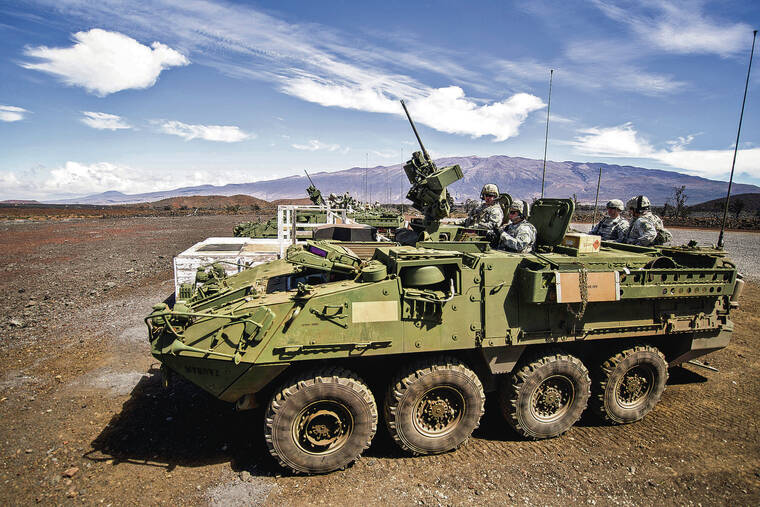URGENT UPDATE: Concerns are escalating over the military’s Pohakuloa Training Area (PTA) in Hawaii, as alarming data reveals that more than 1,260 wildfires have ignited at the site since 1975. The latest environmental impact statement (EIS) highlights that records prior to 2012 are incomplete, suggesting the true number of wildfires could be significantly higher.
The EIS warns that with the ongoing impacts of climate change, the frequency of wildfires is expected to surge, raising crucial questions about safety and land use. Just one year before the devastating Lahaina fire, a wildfire at PTA scorched tens of thousands of acres, including over 12,000 acres beyond the base.
Jim Albertini, President of Malu ‘Aina, is demanding immediate action, stating, “Is PTA a Lahaina in the making? Shut down PTA now. Clean up the unexploded ordnance and toxic mess, and return the land to the people.” His urgent plea underscores the potential risks not only to the environment but to the local communities as well.
Pohakuloa is currently designated as a state conservation district, where military activities such as bombing and shelling are deemed incompatible. The pressing concerns voiced by Albertini and environmental advocates spotlight a growing tension between military operations and ecological preservation.
As communities reflect on recent wildfires’ devastating impacts, including the tragedy in Lahaina, the call to reassess and potentially shut down PTA is gaining traction. Activists argue that the safety of residents and the protection of Hawaii’s natural resources must take precedence.
Authorities have yet to respond directly to these demands, but the situation remains critical. Residents and environmental groups are rallying for action, urging officials to prioritize safety and sustainability over military lease renewals.
What happens next in this burgeoning crisis remains to be seen. With climate change intensifying and the threat of wildfires looming larger each year, the spotlight is squarely on the future of the Pohakuloa Training Area.
Stay tuned for further updates as this situation develops, and consider the implications of military operations on environmental safety in your area.





































































